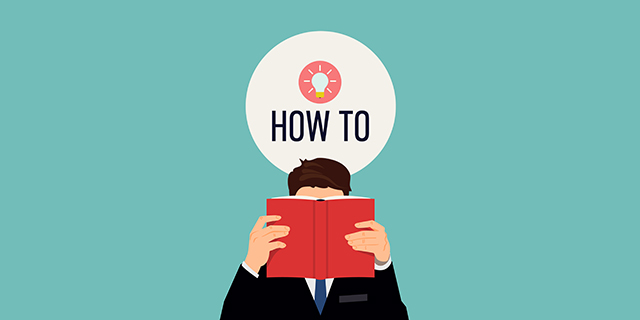How to Guide: Discover the Relevance of Complying With Organized Instructions
How to Guide: Discover the Relevance of Complying With Organized Instructions
Blog Article
Exactly How to Establish a Thorough Budgeting Strategy to Accomplish Financial Security and Control Over Your Costs
Developing a detailed budgeting strategy is vital for attaining economic stability and keeping control over expenses. It begins with a careful analysis of your existing economic landscape, which includes assessing income and costs. Understanding the subtleties of this process can significantly influence your monetary trajectory and way of living selections.
Analyze Your Existing Financial Situation
To efficiently establish a budgeting strategy, it is important to extensively examine your present monetary circumstance. This assessment functions as the foundation for creating a realistic and achievable budget plan. Begin by compiling a comprehensive list of all income sources, consisting of incomes, benefits, and any kind of passive earnings. It is important to calculate your total regular monthly income properly, as this number will certainly guide your budgeting decisions.
Next, evaluate your costs by categorizing them into taken care of and variable expenses. Set costs, such as rental fee or home mortgage payments, insurance policy, and utilities, remain constant each month. On the other hand, variable costs, like grocery stores, entertainment, and discretionary investing, can rise and fall. Keeping a thorough document of your investing behaviors over a few months can offer understanding right into areas where you may be spending beyond your means.
Additionally, take into consideration any arrearages, including credit report card balances, pupil financings, and individual financings. Recognizing your liabilities is crucial for developing a strategy to handle and decrease them efficiently. By carrying out an extensive assessment of your financial circumstance, you can establish a solid groundwork for your budgeting plan, eventually leading to boosted financial security and control over your costs.
Set Clear Financial Goals
Routinely setting clear economic goals is important for effective budgeting and long-term financial success. Defining certain, measurable, achievable, relevant, and time-bound (SMART) goals allows people to create a roadmap for their financial trip. These goals can incorporate different elements of individual financing, including conserving for retired life, buying a home, or settling financial obligation.
To begin, assess your concerns and recognize short-term, medium-term, and long-term goals. Short-term objectives may consist of constructing an emergency fund or conserving for a trip, while medium-term objectives could entail conserving for a vehicle or funding a child's education (How to guide). Long-term objectives generally concentrate on retirement cost savings or riches accumulation
Following, quantify your goals to supply clearness. Instead of aiming to "save more money," define "save $10,000 for a down settlement by December 2025." This degree of uniqueness not only improves motivation but additionally facilitates dimension of progression.
Last but not least, consistently evaluation and change your monetary objectives as conditions alter. Life occasions such as task modifications, family members development, or unforeseen expenses can affect your economic situation, making it necessary to stay responsive and adaptable to accomplish sustained economic security.
Develop Your Spending Plan Framework
Establishing a budget plan framework is a fundamental action in bringing your financial objectives to fruition. A well-structured spending plan framework serves as a blueprint for handling your earnings, expenditures, and financial savings, allowing you to straighten your investing with your financial ambitions.
Begin by classifying your expenditures into crucial and optional categories. Crucial costs include necessities such as real estate, utilities, grocery stores, and transportation, while discretionary costs include entertainment, dining out, and high-end products. This classification assists you prioritize your costs and recognize locations where modifications can be made.
Next, identify your income sources and determine your total month-to-month revenue. This ought to consist of wages, side tasks, and any passive income. With a clear photo of your earnings, you can allot funds per expense group better.
Include savings into your budget structure by alloting a details portion of your revenue. This will help you construct an emergency fund and add to long-term economic goals. A solid budget plan structure not only offers quality on your financial find here circumstance yet likewise empowers you to make educated choices that advertise economic security and control over your expenses.
Display and Adjust Consistently
Surveillance and changing your budget plan is crucial for keeping financial health and wellness and making certain that your spending aligns with your developing goals. Frequently reviewing your budget plan enables you to identify discrepancies between your planned costs and actual costs. This method helps you remain responsible and conscious of your economic scenario.
Begin by setting a regular schedule for spending plan testimonials, whether it be regular, regular monthly, or quarterly. During these testimonials, assess categories where you might be underspending or overspending. This analysis can reveal patterns that demand modifications in your budgeting strategy. How to guide. If you consistently overspend in discretionary groups, it might be time to decrease those appropriations or locate means to reduce back.
Additionally, life changes-- such as task transitions, moving, or family members growth-- can influence your financial landscape. Be prepared to readjust your budget to why not try these out mirror these adjustments, ensuring it stays relevant and effective. Keep in mind, a budget plan is a living record that must advance with your monetary conditions. By proactively keeping an eye on and readjusting your budget, you can preserve control over your costs and work towards attaining your financial stability objectives.
Make Use Of Tools and Resources
A large variety of sources and tools can considerably enhance your budgeting procedure, making it much easier to track expenditures and stay on target. Financial administration software application, such as Mint, YNAB (You Required a Spending Plan), or EveryDollar, provides user-friendly interfaces for keeping an eye on income and expenses in real-time. These systems commonly include automated tracking of purchases, categorization of costs, and graphical representations of your economic scenario, promoting notified decision-making.
Along with software application, mobile applications can offer benefit and accessibility for budgeting on-the-go. Lots of applications enable for the syncing of checking account, making sure exact data while giving alerts for upcoming expenses or financial limits.
Furthermore, spread sheets, such as Microsoft Excel or Google Sheets, can be customized to produce navigate to this site a personalized budgeting system. These tools enable users to by hand input data, assess patterns, and project future expenditures based on historic spending patterns.
Lastly, take into consideration leveraging instructional resources such as budgeting workshops, online training courses, or monetary blog sites. These resources can strengthen your understanding of effective budgeting strategies and help you make educated choices that line up with your financial objectives. Making use of these devices and resources is essential in achieving financial stability and control over your expenditures.
Conclusion

By carrying out an extensive assessment of your economic circumstance, you can establish a solid groundwork for your budgeting plan, inevitably leading to enhanced economic security and control over your costs.

By evaluating the existing financial scenario, establishing clear financial goals, and creating an organized spending plan framework, people can properly assign resources. Utilizing financial management devices better enhances the budgeting procedure, eventually leading to boosted economic control and security.
Report this page